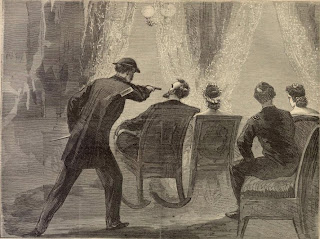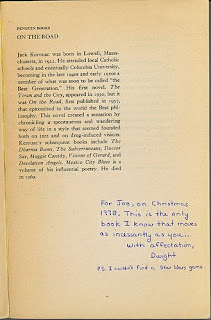
Amazon's Kindle is getting a lot of buzz these days.
First up, the Wall Street Journal, that
says e-books will change the way we read and write.
From the essay...
The latest such moment came courtesy of the Kindle, Amazon.com Inc.'s e-book reader. A few weeks after I bought the device, I was sitting alone in a restaurant in Austin, Texas, dutifully working my way through an e-book about business and technology, when I was hit with a sudden desire to read a novel. After a few taps on the Kindle, I was browsing the Amazon store, and within a minute or two I'd bought and downloaded Zadie Smith's novel "On Beauty." By the time the check arrived, I'd finished the first chapter.
Aha.
I knew then that the book's migration to the digital realm would not be a simple matter of trading ink for pixels, but would likely change the way we read, write and sell books in profound ways. It will make it easier for us to buy books, but at the same time make it easier to stop reading them. It will expand the universe of books at our fingertips, and transform the solitary act of reading into something far more social. It will give writers and publishers the chance to sell more obscure books, but it may well end up undermining some of the core attributes that we have associated with book reading for more than 500 years.
There is great promise and opportunity in the digital-books revolution.Next up, the New Yorker, who says "Uh, not so fast Wall Street Journal!"
From their
piece:
In a recent essay in the Wall Street Journal, Steven Berlin Johnson airs some wildly optimistic opinions about the social potential of e-books. He claims that, once everyone is reading online, individuals will no longer have to struggle with a text alone:
You’ll read a puzzling passage from a novel and then instantly browse through dozens of comments from readers around the world, annotating, explaining or debating the passage’s true meaning.
Think of it as a permanent, global book club. As you read, you will know that at any given moment, a conversation is available about the paragraph or even sentence you are reading. Nobody will read alone anymore. Reading books will go from being a fundamentally private activity—a direct exchange between author and reader—to a community event, with every isolated paragraph the launching pad for a conversation with strangers around the world.
Really? Project Gutenberg, which has been digitizing works since 1971, contains thousands of books—all free (that's another issue) to copy, paste, e-mail, and reference at any hour, and, yet it hasn’t produced a worldwide conversation that explains the greatness of “Middlemarch” any better than a good English professor or an enthusiastic friend can.Who is right and who is wrong in all this Kindle who-ha? Probably both. Those who like the Kindle will use the Kindle. Those that like books, actual books of paper and glue, will continue to read actual books. Just so long as people enjoying reading, what difference does it really make? Whatever way makes it easier for people to read, whatever makes it more enjoyable for them, whatever makes reading more a part of someone's life, big whoop. You can quote me. "Big whoop."





































